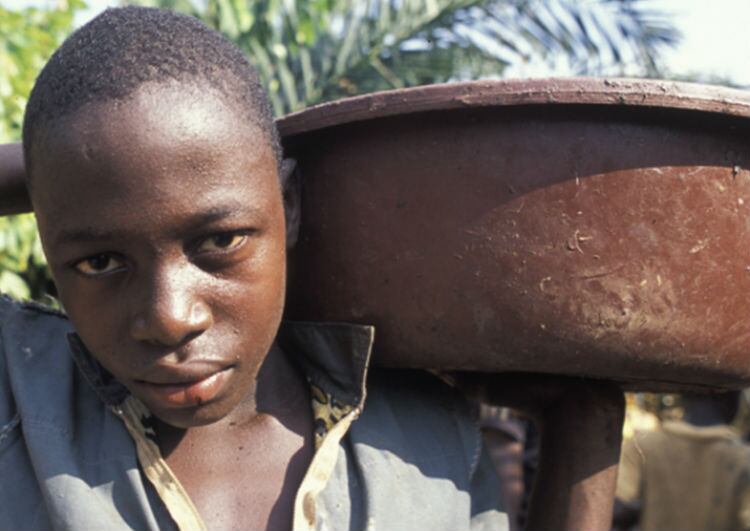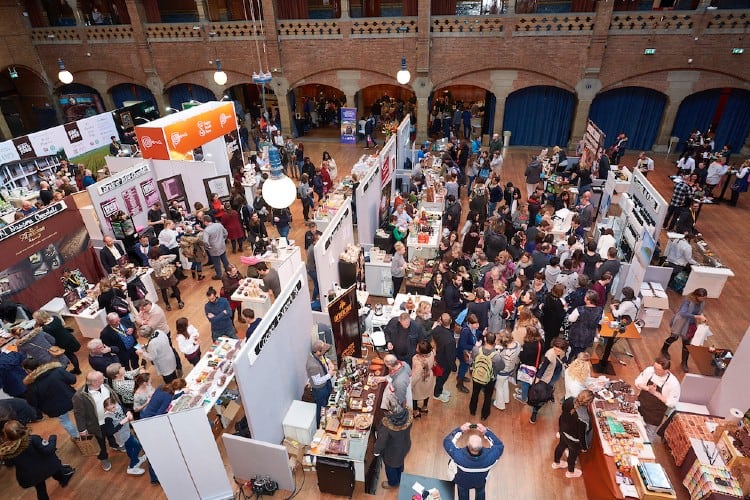Launched in September 2020, the Dutch Initiative on Sustainable Cocoa (DISCO) is the latest national joint vision for a sustainable cocoa sector and dates back to the success of The Netherlands’ Letter of Intent, ‘Sustainable cocoa consumption and cocoa production,’ signed into action in 2010 to achieve 100% guaranteed sustainable cocoa consumption by 2025 on all cocoa imported into the country.
An in-depth look and update of the initiative was provided at Chocoa21, the Amsterdam Sustainable Cocoa Conference, which became a virtual event this year.
DISCO mirrors similar programmes set up during the past decade in Belgium (Beyond Chocolate); Germany (German Initiative on Sustainable Cocoa); and the Swiss Platform for Sustainable Cocoa.
Mark de Waard, Senior Program Officer at IDH (The Sustainable Trade Initiative), said all the programmes have the same ambition, which is the improvement of the lives of cocoa farmers and their families while preserving the environment around farms.
Enhanced transparency
He told the conference that a Memorandum of Understanding (MOU) has been signed be the four European platforms to collaborate on enhanced transparency, living income, deforestation, and child labour in the cocoa sector and there will also be a streamlining of communication and engagement of multi-national companies.
The Netherlands accounts for approximately 20-25% of cocoa traded globally.
Frank Joosten, Senior Advisor at IDH, said DISCO is already linking to other EU initiatives beyond the government platforms and more partners are welcome to join the group.
“There is a joint responsibility as achieving sustainability in almost a quarter of the trade in world cocoa beans is a very tall order,” he said.
In terms of governance, Joosten said they are keeping it as lean as possible as the real work needs to go into addressing farmer income, labour issues in the production areas and not in meetings and administration.
Charles Snoeck, Secretariat, Beyond Chocolate, said: “It is crucial we work together because this will increase the potential for impact and by working together we can look for scaling-up our activities and learn from, and inspire, each other and increase the benefits we aim to deliver to producers.”
He said the quartet needs to look beyond their own borders, the cocoa market is European, and it is important as coordinators of the platforms that they respond to the needs of various European stakeholders as well.
Snoeck said he welcomed more EU involvement around sustainability issues in the cocoa sector and said more collaboration with Brussels, and the four platforms can make a sound contribution to its plans.
Evelyn Bahn, Vice Chair, German Initiative on Sustainable Cocoa, said it was established in 2012, and and is prepared to share its vast experiences on sustainability with younger schemes.
“It’s very important we align on certain topics – living income, transparency, child labour and deforestation – but also align on the organisational structure and membership of the platforms, some companies and CSO (Civil Societies) belong to all the platforms so it’s important we have more common working groups,” she said.
Bahn told Chocoa21 that only if everyone pulls in the same direction will targets be met on living income. The Dutch and Belgium export more chocolate, for example, but Germany consumes more, so differences between member states must be taken into consideration.
The German Initiative on Sustainable Cocoa has begun a monitoring process on transparency from various members and what impact it is having, and what lessons can be learned.
Priority on a political level and collaboration with other initiatives, including the Alliance on Living Income, the Cocoa and Forest Initiative and the International Cocoa Initiative is welcome, said Bahn as is the involvement of different cocoa platforms setting up the ‘Cocoa Talks’ with the EU.
She said collaboration with cocoa exporting countries [Ghana, Cote d’Ivoire] is also required and what they have asked for is a common European stakeholder group as it is complex to deal with the different cocoa platforms in Europe.
Ingrid Fromm, Board Member, Swiss Platform for Sustainable Cocoa, said it is working on clear and measurable targets and to define a strategy on how to achieve them.
Child labour, living income and deforestation are all priorities for the Swiss, said Fromm.
“We have put a lot of effort into a common monitoring system and through the MOU with other initiatives for sustainable cocoa we hope to increase this collaborative action and to leverage in order to reach a systematic change that is so desperately needed in the sector.”
Why all the different initiatives?
In a question raised to the panel it was asked why all the different initiatives? It all seems rather complex, whey not have just one European-wide programme?
Snoeck said it’s an important point and the four platforms from different countries identify with the complexities, but two things needed to be taken into account: one, specifics related to the market which might have different leverage points, for example Belgium chocolate is recognised everywhere in the world and why it has an export-orientated chocolate industry.
“The idea of Beyond Chocolate was to associate the brand, Belgium Chocolate, that is known world-wide for high quality, with high sustainability targets,” he said.
“The other point is that for these platforms to really make progress, there is a need for funding and we are looking at member states to finance these platforms. In Belgium we are lucky enough to have an investment tool that helps to trigger action and create new dynamism on the market.”
Snoeck said the platforms bring together multi-disciplines and are rich with industry, retail, small and large companies as well as academics and civil society and governments.
“Everyone needs to take an extra step and this is why the platforms initially started at national level, but ideally in future these four ambitious platforms can be considered as front-runners for a European-wide movement, which would be the ultimate dream.”



